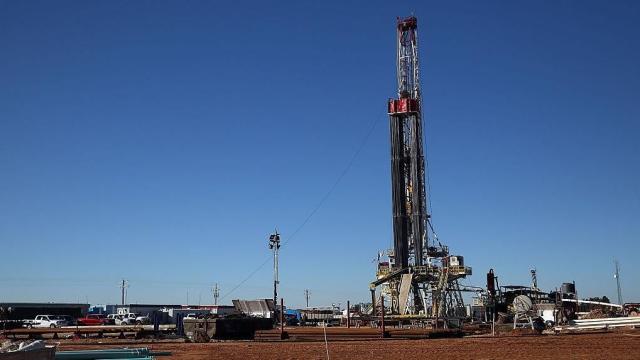The Railroad Commission Texas, which regulates the state’s oil and gas industry, is investigating a 5.4-magnitude earthquake that rocked communities in West Texas last Wednesday, The Texas Tribune reports. Hydraulic fracturing, or fracking, is a drilling technique common in the area that is known to cause earthquakes.
According to the U.S. Geological Survey, the earthquake occurred on November 16, just west of Pecos, Texas. This was the state’s largest earthquake since 1995 and was felt as far as El Paso. The oil and gas regulatory agency is trying to understand if this was a naturally occurring earthquake or if it was caused by waste water from fracking. Waste water disposal from fracking has dramatically increased the number of earthquakes in Texas. The seismic activity has especially become more common around the Permian Basin in West Texas, where oil and gas production is concentrated, according to the Texas Tribune.
During the fracking process, oil companies inject a mix of water, sand, and chemicals into Earth’s crust. This fractures the rock formation, which then allows the companies to extract natural gas and oil from deep in the ground. Many oil and gas companies dispose of this polluted waste water in wells deep underground. The pressure from these wells can trigger nearby dormant fault lines, causing earthquakes. A lot of the recorded seismic activity around areas like Pecos and El Paso has been connected to these contaminated underwater wells, according to research from the U.S. Geological Survey.
The Texas Tribune previously reported that the number of earthquakes in the state doubled in 2021. According to data from the Bureau of Economic Geology at the University of Texas at Austin, there were more than 200 earthquakes categorised as 3 magnitude and higher. There were only 95 earthquakes reported in Texas in 2020, according to the Bureau’s data.
Communities near hydraulic fracturing sites are at risk from more than just rumbling ground. A study this past January connected fracking to premature deaths of people who live near the sites. Fracking is known to pose significant health risks: The sites contaminate nearby water sources, and fracking leaks carcinogenic pollutants into the air and water. Fracking can also release PFAS into the environment, chemicals linked to a variety of health issues.
